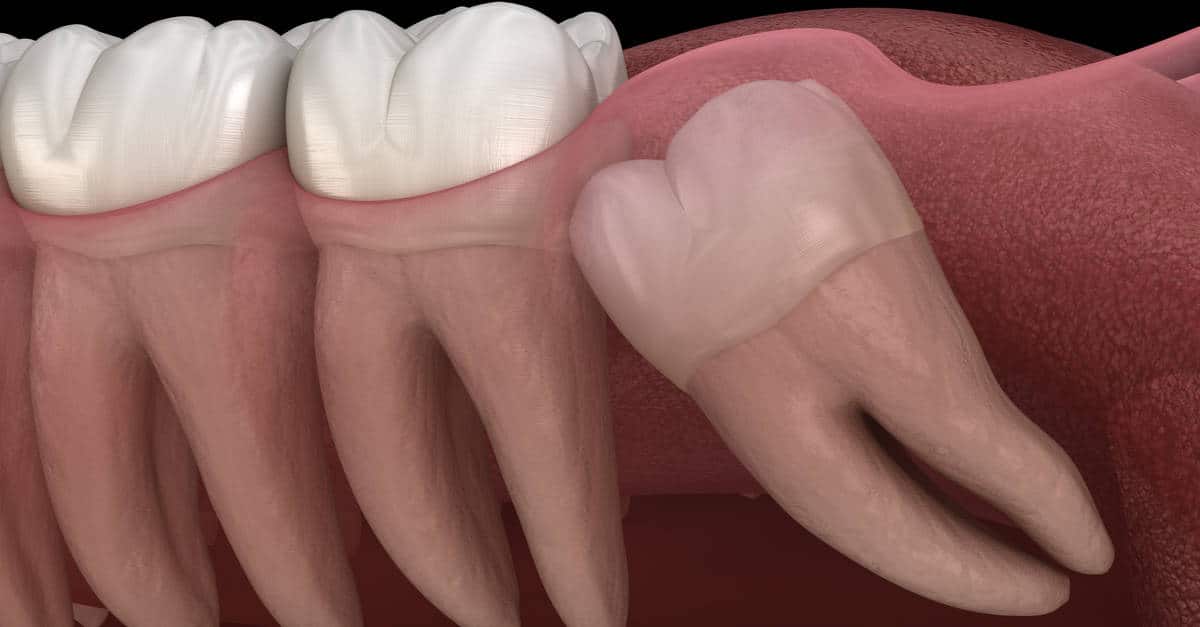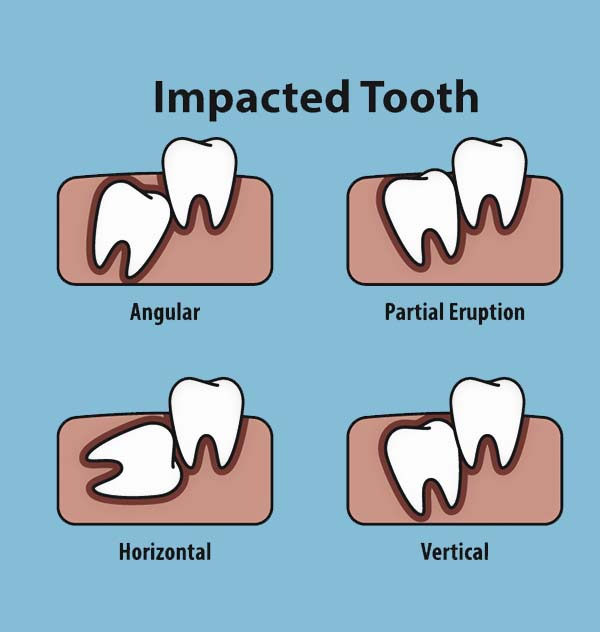Top Tips for a Smooth Wisdom Teeth Removal Aspendale Experience
Top Tips for a Smooth Wisdom Teeth Removal Aspendale Experience
Blog Article
Discovering Various Sedation Options for a Comfortable Wisdom Pearly Whites Removal Experience
The usage of sedation throughout such procedures has become significantly usual to relieve stress and anxiety and discomfort. With an array of sedation choices available, from neighborhood anesthesia to general anesthetic, each approach uses varying levels of leisure and discomfort control.
Regional Anesthesia
Local anesthesia is a typically utilized technique for numbing certain locations of the mouth during wisdom teeth removal treatments. By providing an anesthetic, such as lidocaine, a dental expert can make sure that the client continues to be comfortable and pain-free throughout the extraction procedure. Local anesthetic jobs by temporarily obstructing the nerves in the mouth, preventing them from sending discomfort signals to the mind. This allows the dental professional to execute the extraction without creating any discomfort to the patient.
One of the main benefits of local anesthesia is its targeted numbing impact, which means that only the particular area being treated is influenced. This local approach minimizes the risk of systemic side impacts and permits a quicker healing post-procedure. Furthermore, regional anesthetic is considered to be a routine and risk-free technique in dental care, with marginal threats involved when provided by a trained professional.
Laughing Gas
Nitrous oxide, commonly understood as laughing gas, is a type of sedation often utilized in dental care to assist clients relax during dental procedures. This sedation alternative permits the person to stay conscious and receptive throughout the procedure while really feeling at convenience and comfy.
As soon as the mask is eliminated, the effects of the gas use off rapidly, permitting individuals to resume their normal activities without sticking around sedative impacts. Nitrous oxide is appropriate for individuals of all ages, making it a flexible sedation option for wisdom teeth extractions and various other dental procedures.
Oral Sedation
Oral sedation, a medicinal method utilized in dentistry, includes the management of sedative medicines by mouth to cause a relaxed state throughout oral treatments. This type of sedation is typically used for individuals going through wisdom teeth removal to relieve stress and anxiety and pain. The medicines prescribed for dental sedation come from a course of medications called benzodiazepines, which have sedative, anxiolytic, and amnesic homes. Normally, the individual takes the recommended medicine prior to the treatment, enabling enough time for the sedative effects to take hold.
Among the key advantages of dental sedation is its simplicity of management. Unlike intravenous sedation, dental sedation does not call for injections or needles, making it a much more comfy choice for individuals with a worry of needles. Additionally, oral sedation is considered safe and effective when provided by skilled oral experts. It is vital for patients to comply with pre-operative instructions provided by their dentist, such as abstaining from consuming or consuming prior to the treatment to make certain the sedative medication works as intended.
IV Sedation
Administered intravenously by experienced physician, IV sedation is an effective method utilized to generate a controlled state of deep relaxation and unconsciousness during dental treatments. Unlike oral sedation, which can be unpredictable in its results, IV sedation permits for precise control over the level of sedation, making it an optimal selection for complicated treatments like knowledge teeth removals.
Throughout IV sedation, a sedative medication is delivered directly right into the bloodstream via a blood vessel, allowing it to take effect swiftly and successfully. This approach guarantees that the person remains uninformed and comfy of the treatment while still keeping crucial features such as breathing and heart rate.
Among the main benefits of IV sedation is its capacity to offer a deeper level of sedation compared to various other methods, making it especially appropriate for clients with high levels of stress and anxiety or view those going through extensive oral work (wisdom teeth removal aspendale). Furthermore, the impacts of IV sedation generally put on off progressively after the treatment, minimizing the chance of grogginess or sticking around adverse effects. In general, IV sedation offers a efficient and risk-free option for making sure a comfy and stress-free experience during wisdom teeth extraction

General Anesthesia
Having actually reviewed the benefits of IV sedation for wisdom teeth removal, the use of basic anesthetic gives an alternative option for clients requiring a deeper degree of unconsciousness throughout oral procedures. General anesthesia induces a controlled state of unfamiliarity, guaranteeing the person feels no discomfort or pain during the removal process. This approach is specifically valuable for people with severe dental stress and anxiety, facility surgical needs, or those undergoing multiple extractions simultaneously.
General anesthesia is carried out by informative post a qualified anesthesiologist that closely keeps an eye on the patient's crucial signs throughout the treatment. It includes the use of intravenous medicines or breathed in gases to induce a state of unfamiliarity. While under basic anesthetic, the patient will not know the surgical procedure, experience any kind of pain, or have any type of recollection of the procedure afterward.
Although basic anesthesia is risk-free when administered by certified specialists, it carries a somewhat greater threat contrasted to other sedation options - wisdom teeth removal aspendale. Individuals thinking about basic anesthesia for wisdom teeth removal should go over the potential dangers and advantages with their dentist or oral cosmetic surgeon to make a notified choice based upon their specific requirements and clinical background

Final Thought
To conclude, visit this site right here various sedation options are available to make sure a comfortable wisdom teeth extraction experience. Neighborhood anesthetic is frequently utilized for numbing the certain location, while nitrous oxide offers leisure and discomfort relief. Oral sedation and IV sedation deal deeper degrees of relaxation, depending upon the person's requirements. General anesthetic can be used for much more complex cases. It is necessary to seek advice from your dental practitioner or dental specialist to identify the most ideal sedation choice for your procedure.
Nitrous oxide is suitable for clients of all ages, making it a functional sedation alternative for knowledge teeth extractions and other oral treatments.

Report this page